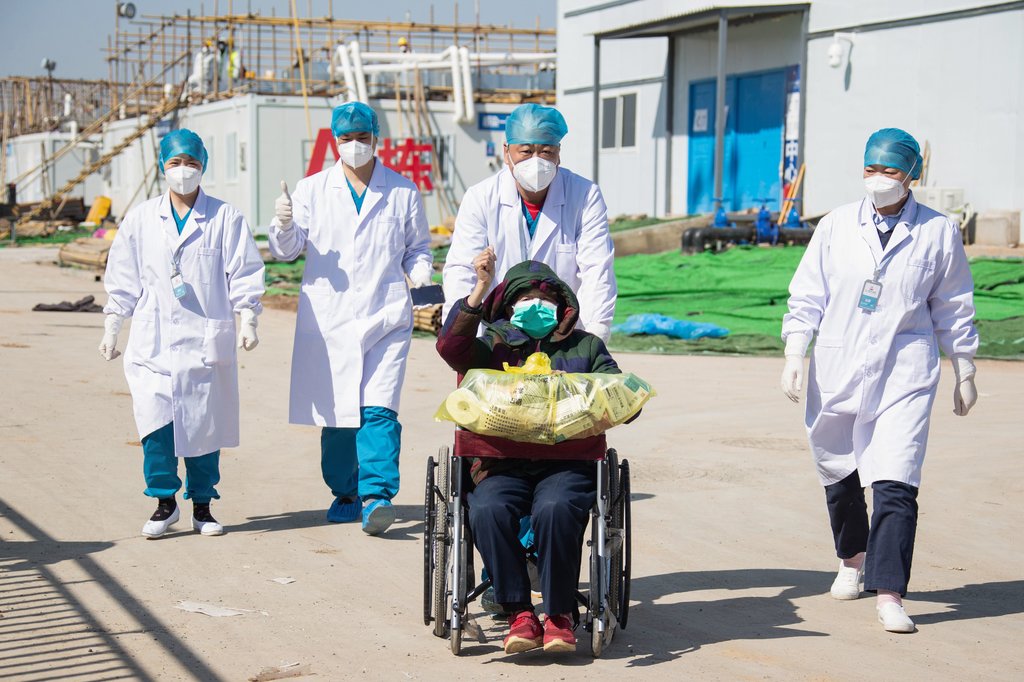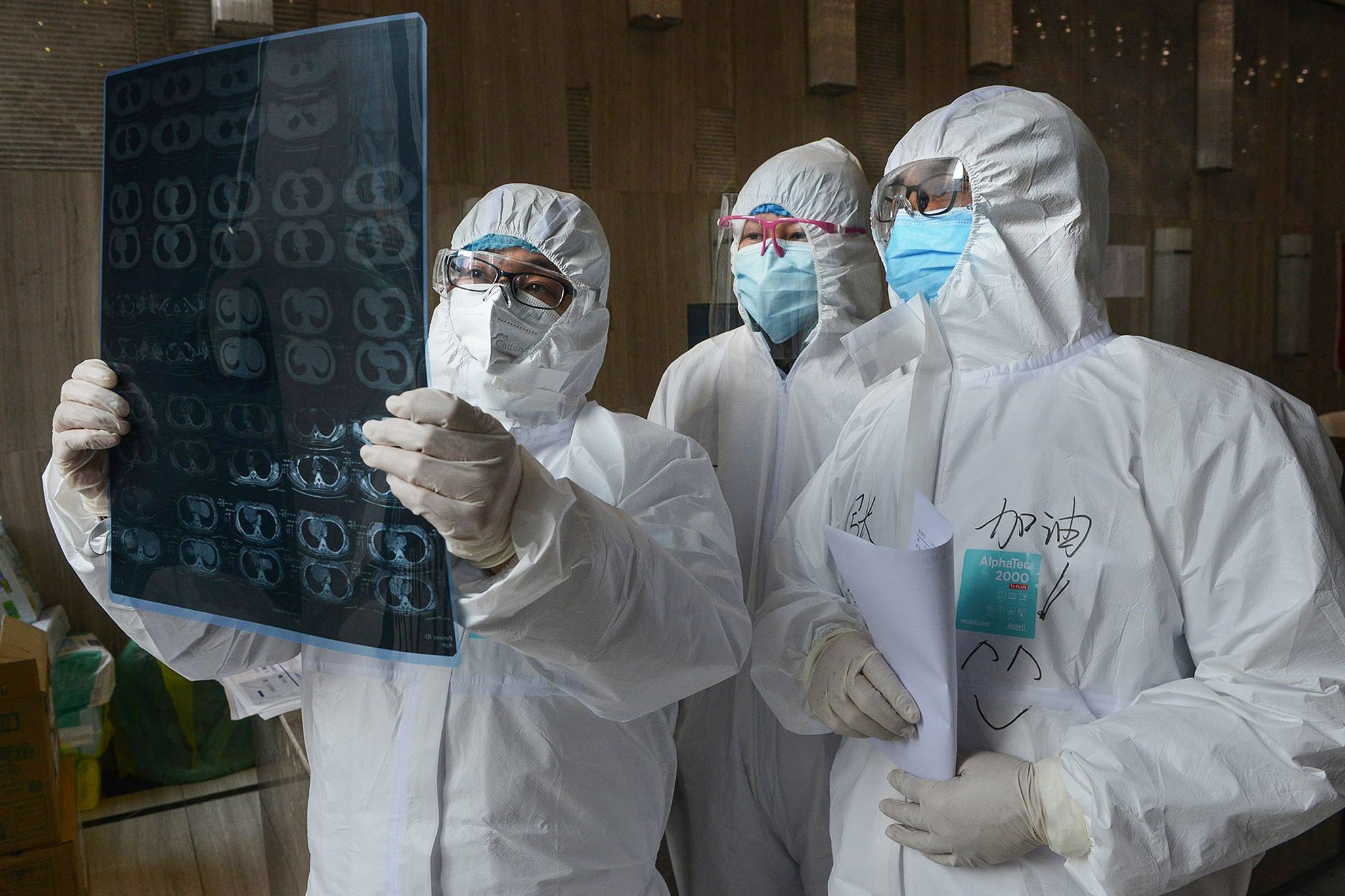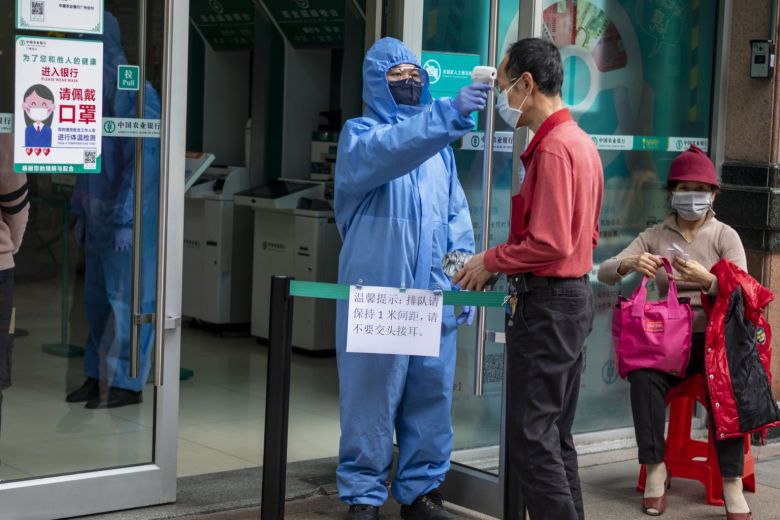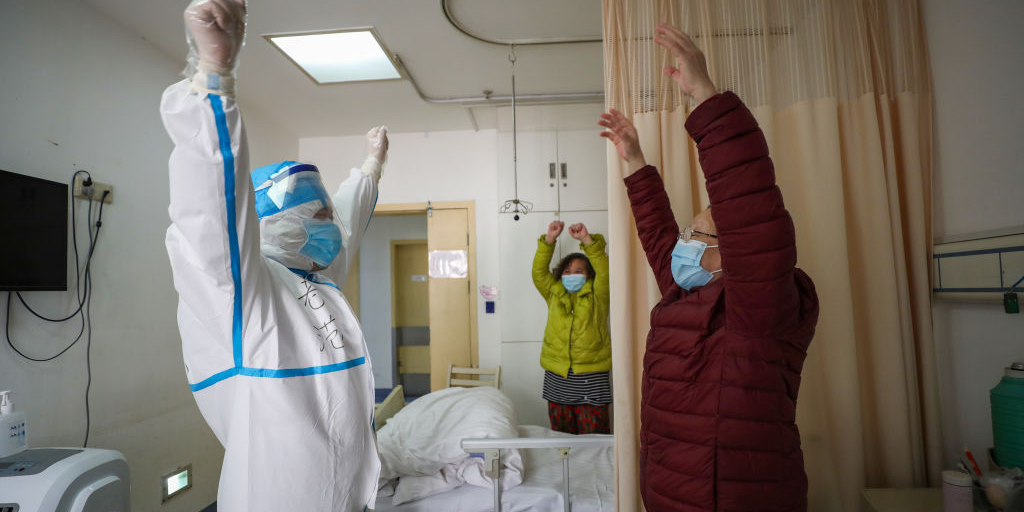Doctors Find About 10% Of Recovered COVID-19 Patients In Wuhan Tested Positive Again
However, as previously reported, there is still no evidence that these recovered patients are infectious.
It was previously reported that while COVID-19 cases in Malaysia continue to rise, so does the number of recovered patients
The Ministry of Health announced that 15 patients recovered from the virus on 19 March, bringing the country's tally of recovered patients to a total of 75.
While it is certainly no mean feat, it may still be too early to celebrate.
Doctors around the world, especially China who dealt with the outbreak the earliest, have begun to see some patterns in the patients that return to them for follow-up, and research on the long-term effects of being infected by the virus that causes COVID-19 are slowly emerging.
A COVID-19 patient who recovered and was discharged from Leishenshan Hospital in Wuhan, China, earlier this month.
Image via The New York Times1. Survivors could still be infectious after their symptoms have disappeared
According to Bloomberg, Chinese scientists who studied medical records and laboratory data of COVID-19 patients in Wuhan found that the coronavirus stayed as long as 37 days, or an average of 20, in survivors' respiratory tracts after recovery.
The study which was published in The Lancet suggests that patients remain infectious long after symptoms improve, and may unintentionally spread the virus further after being discharged from hospital.
2. It could be possible to be infected by the coronavirus again
According to The Straits Times, China's health authorities found about 14% of patients who recovered from COVID-19 in Guangdong province tested positive again in later check-ups.
However, experts believe the tests returned positive because the patients were still recovering from lung infections and were yet to be fully healthy, instead of being infected the second time.
A specialist also told The New York Times that it is unlikely that survivors will get infected twice as usual viral infections develop at least a short-term immunity in the recovering patient.
"I'm not saying that reinfection can't occur, will never occur, but in that short time it's unlikely," said Florian Krammer, a virologist at the Icahn School of Medicine in New York, who admitted there was still much to research about immunity after recovering.
3. Patients may have a long-lasting reduction in lung function
The Hong Kong Hospital Authority discovered that some recovered COVID-19 patients now suffered from reduced lung function and were unable to do things they could in the past, reported South China Morning Post.
"They gasp if they walk a bit more quickly," said Dr Owen Tsang, medical director of the Infectious Disease Centre at Princess Margaret Hospital in Kwai Chung.
"Some patients might have around a drop of 20 to 30% in lung function [after recovery]."
He also said that discharged patients could do physiotherapy and cardiovascular exercise such as swimming to help the lungs recover gradually.
However, while scans indicated there was organ damage to the lungs, Dr Tsang said it was too early to ascertain if people would develop complications in later life such as pulmonary fibrosis, a condition where lung tissue hardens and ceases to properly function.
If Malaysia should learn anything, it was that China remained cautious with recovered patients after discharge
In the clinical guidelines by the Chinese National Health Commission, they recommended that discharged patients continue to isolate themselves and monitor their health for 14 days.
It was recommended that patients continue to wear masks, stay in a well-ventilated single room, reduce close contact with family members, wash their hands frequently, and avoid going out of the house.
The health authorities said they should then return to the hospital for follow-up in two weeks.
The Health director-general warned that Malaysia has "only a small window of opportunity" to stop the rapid spread of the virus:



